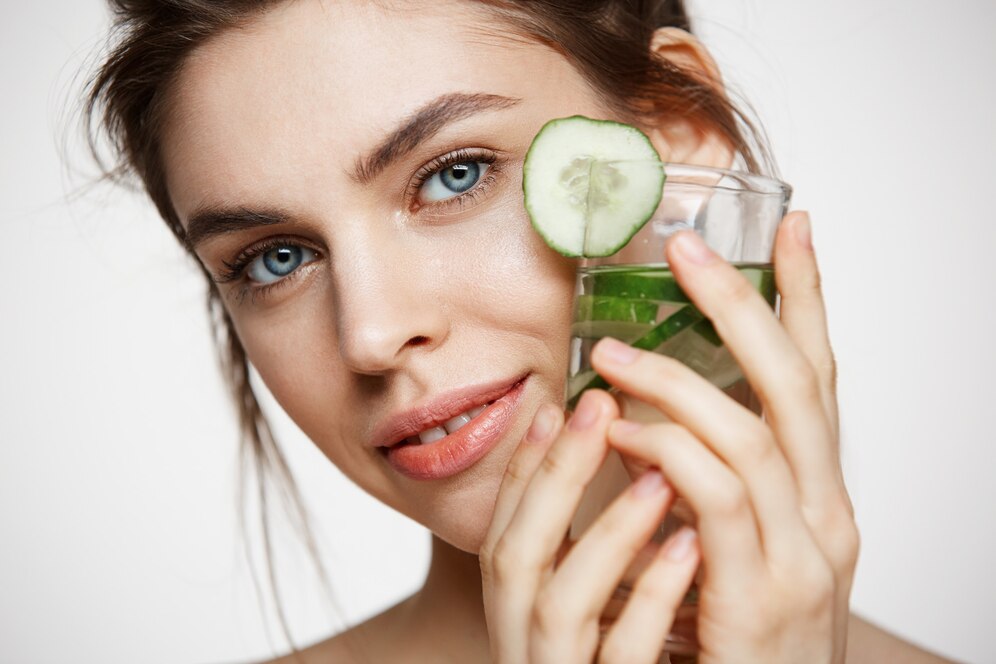Your skin care journey will have many different aspects to consider if you truly want to have a glowing aura. Not only do we encourage establishing a routine that involves proper hygiene, moisturization, protecting yourself from the sun’s harmful rays, and simply hydrating yourself by drinking plenty of water, but a well balanced diet is also instrumental in maintaining healthy skin. You know the saying, “you are what you eat”... well, there is some truth in that, and by having a well balanced diet full of the nutrients that you need to feel your best, your skin will also thank you!
Crucial Foods to Consider in Your Skin Care Journey
You may find that you’re already eating a lot of these foods, but there may be some things on this list that surprise you! And who knows, maybe throwing some flax seeds into your daily smoothie will be just what you need to up your skin care game. A well-balanced diet rich in certain nutrients may help promote the healing of scars by providing the necessary building blocks for healthy skin tissue.
Here are some foods that may be beneficial for scar healing:
- Protein-rich foods: Protein is essential for the growth and repair of tissues, including the skin. Good sources of protein include lean meats, poultry, fish, eggs, tofu, beans, and lentils.
- Foods high in vitamin C: Vitamin C plays a key role in collagen synthesis, which is essential for healthy skin. Good sources of vitamin C include citrus fruits, berries, kiwi, mango, papaya, guava, bell peppers, broccoli, and tomatoes.
- Zinc-rich foods: Zinc is essential for the synthesis of collagen and the formation of new tissue. Good sources of zinc include oysters, beef, pork, chicken, beans, nuts, and whole grains.
- Foods high in vitamin A: Vitamin A is necessary for skin cell growth and repair. Good sources of vitamin A include sweet potatoes, carrots, spinach, kale, and other dark leafy greens.
- Omega-3 rich foods: Omega-3 fatty acids are anti-inflammatory and may help reduce inflammation and redness associated with scars. Good sources of omega-3s include fatty fish such as salmon, tuna, and sardines, as well as flax-seed, chia seeds, and walnuts.
It is important to note that while a healthy diet can support the healing of scars, it is not a substitute for proper wound care and medical treatment if necessary.
What About Collagen Supplements?
Collagen supplements have been marketed for their potential benefits in improving skin health, including the appearance of scars. However, the evidence for the effectiveness of collagen supplements in treating scars is limited and conflicting. Some studies have suggested that taking collagen supplements may improve the appearance of scars, while others have found no significant effects. An important thing to consider is that a lot of the insight surrounding taking a collagen supplement, and receiving the desired results are anecdotal, and clinical trials still need to be conducted to know for sure.
While collagen supplements may provide some benefits for skin health, they should not be relied upon as the primary treatment for scars. In other words, you still need to commit to your skin care routine no matter what you’re consuming – whether it’s a supplement, a well balanced diet, or some combination of these things.
When in doubt, it’s always a best practice to contact your physician if you have any questions about your skin care regimen, your diet, or your desire to work some supplements into your routine.
Topical Treatment
Our unique-proprietary blend of high quality silicone creates an ultra-thin invisible barrier, with similar breathability of your skin. This layer modifies the factors involved in healing to normalize the production of collagen, preventing the formation of abnormal scarring by creating the optimal environment for your skin to heal.
In our studies, patients treated with silicone scar gel were significantly less likely to develop postoperative hypertrophic scarring. Patients were 1.8 times more likely to develop a mild hypertrophic scar WITHOUT a Silicone Scar Treatment. Patients were 3.7 times (X) more likely to develop a more severe hypertrophic or keloid scar WITHOUT a Silicone Scar Treatment. The recommendations from the clinical reviews are clear – silicone should be used as the first line defense against all types of scars.
- Reduce the redness of scars
- Flatten scars
- Minimize pain and itchiness associated with scarring
- Normalize the production of collagen
- Prevent formation of abnormal scarring
About AIM Medical
AIM Medical is a skincare products research, engineering and manufacturing company based in the world's med tech hub - Boston, Massachusetts. Dedicated to developing novel, safe, yet highly effective portfolio of products that target common dermatologic conditions, AIM Medical advances the high value opportunities for products that focus on wound care and atopic dermatitis. At AIM Medical we are proud of our heritage of creating health and beauty through technology innovation. We have aligned AIM Medical to be a worldwide healthcare brand advancing the cutting edge technologies to work in real.
Don’t forget to follow us on Instagram!

